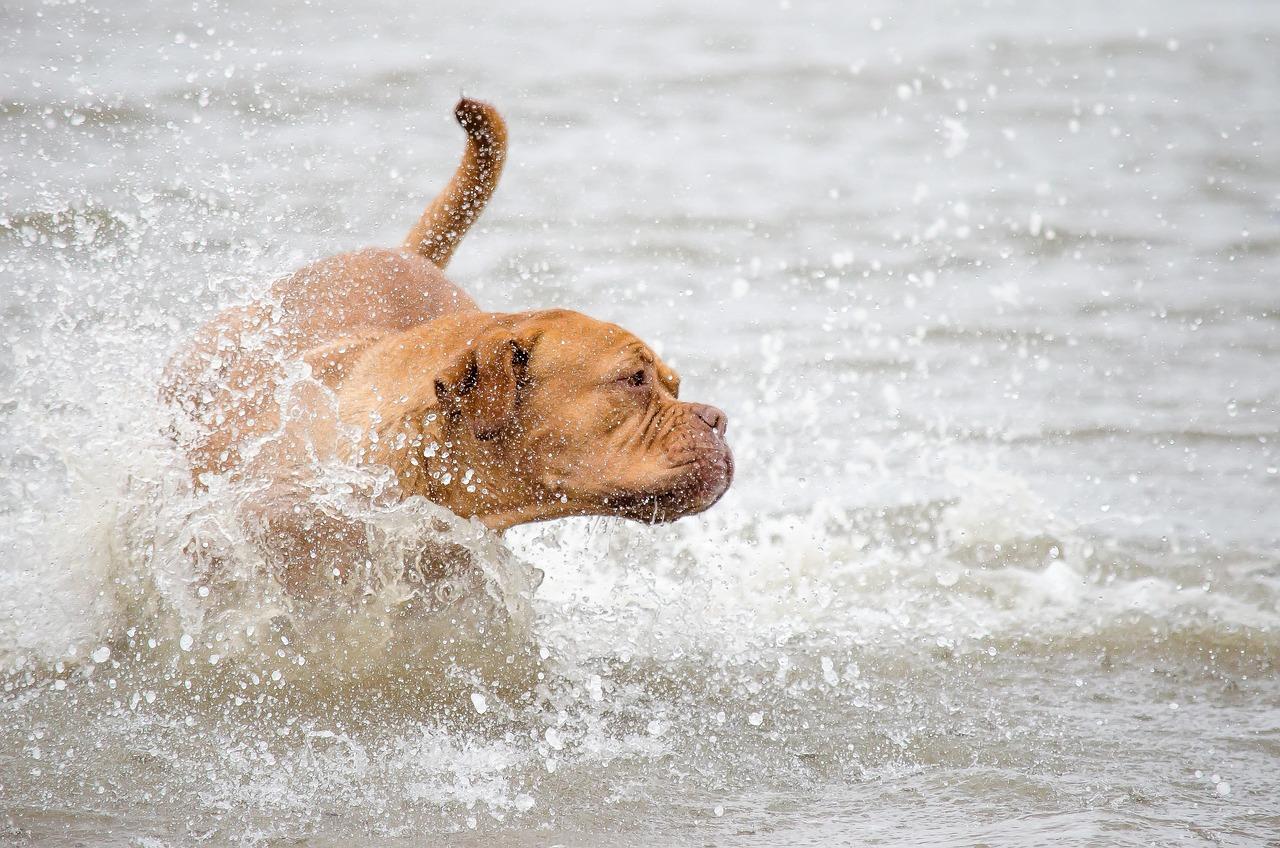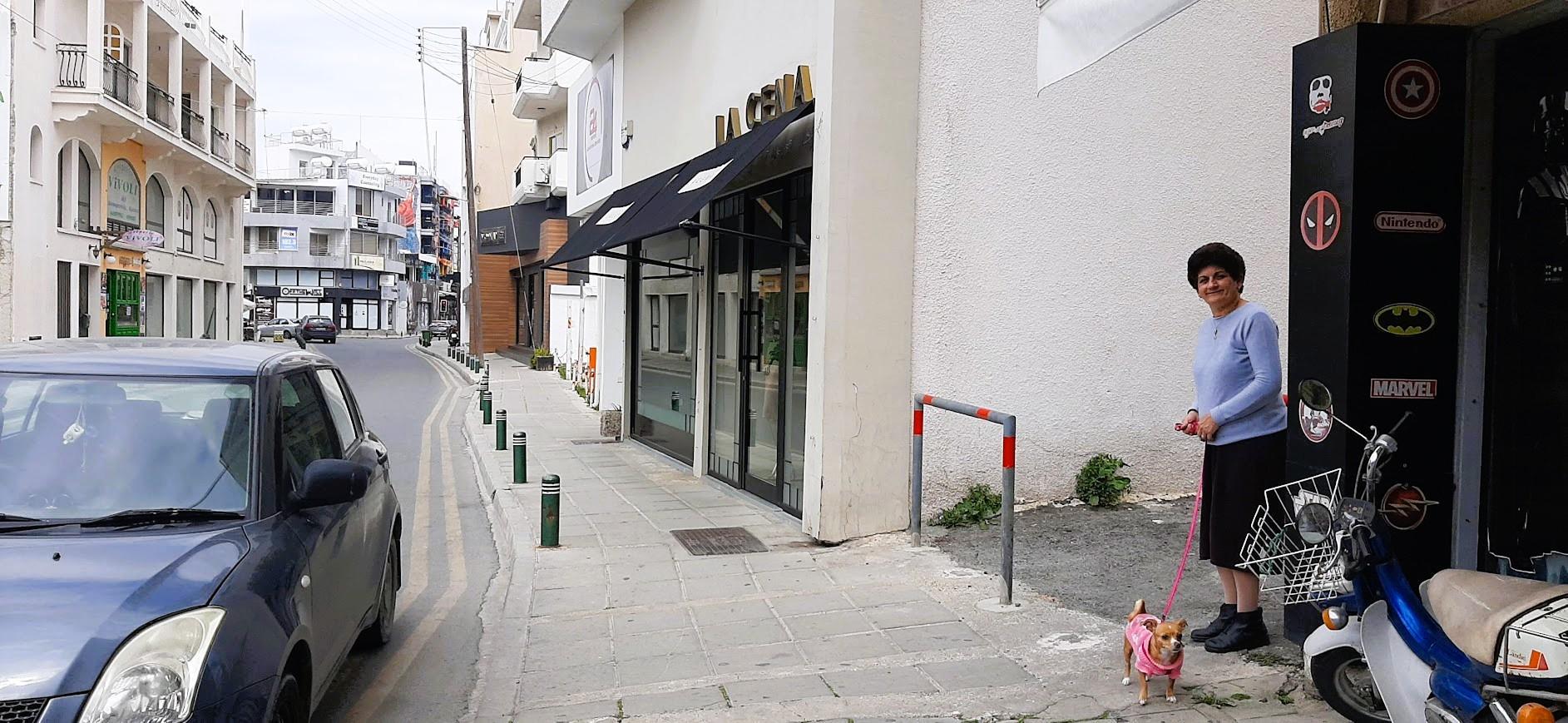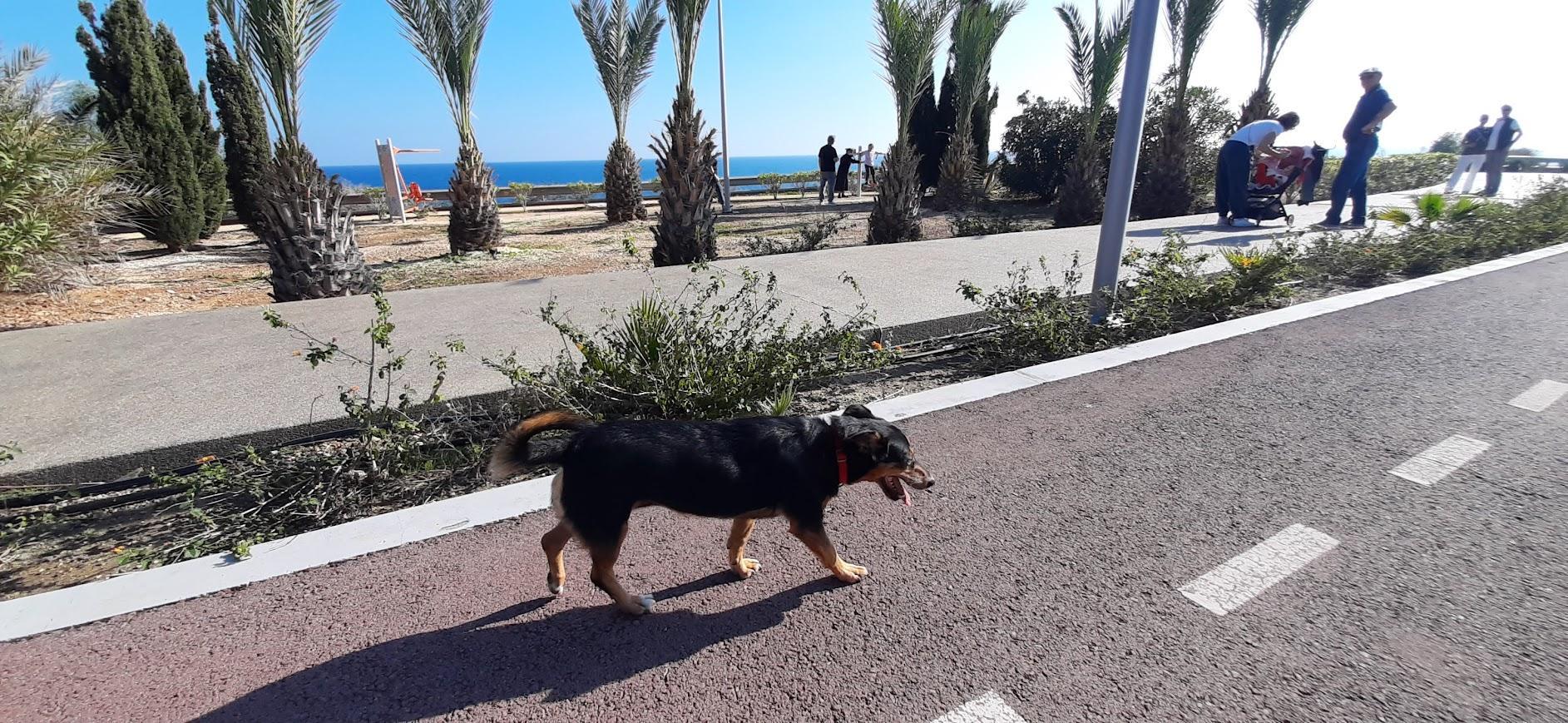For many, moving to sunny Cyprus with your four-legged friend is a dream come true. Strolling through ancient streets, relaxing in sun-drenched cafés, and listening to the waves lap against the shore are all wonderful experiences, and they become even better when shared with a loyal dog. However, making this dream a reality requires preparation and an understanding of the local rules.
Cyprus is not just one island. It has two different jurisdictions, and the rules for importing and living with a dog in the Republic of Cyprus (south) and Northern Cyprus (TRNC) differ greatly. This guide is a comprehensive roadmap that will take you through all the stages, from transportation to everyday life, helping you avoid costly mistakes and stress.

Импорт собаки на Кипр
Самый ответственный и сложный этап — это легальный ввоз животного на остров. Ключевая ошибка, которую совершают многие, — это непонимание того, что правила для южной части острова, являющейся членом ЕС, и для северной части, признанной только Турцией, абсолютно разные. Данные правила относятся к «некоммерческому» ввозу, то есть владелец путешествует вместе с питомцем (или в пределах 5 дней от него), а само животное не предназначено для продажи или передачи новому владельцу.
Въезд в Республику Кипр (Юг — территория ЕС)
Процедура здесь регламентируется правилами ЕС Pet Travel Scheme, что делает ее относительно стандартизированной.
- Сначала микрочип. Процесс начинается с имплантации 15-значного микрочипа стандарта ISO 11784/11785. Это необходимо сделать до вакцинации от бешенства. Если чип не соответствует стандарту ISO, владелец обязан иметь при себе собственный сканер для его считывания.
- Вакцинация от бешенства. Проводится после чипирования. Животному должно быть не менее 12 недель. После первичной вакцинации должен пройти обязательный 21-дневный период ожидания, прежде чем собака сможет въехать на территорию ЕС.
- Паспорт ЕС или ветеринарный сертификат. При переезде из другой страны ЕС достаточно стандартного ветеринарного паспорта европейского образца. При въезде из страны, не входящей в ЕС, требуется официальный Сертификат здоровья животных (Animal Health Certificate). Его заполняет ветеринар, а затем заверяет государственный уполномоченный орган страны выезда. Сертификат действителен в течение 10 дней до прибытия на Кипр.
- Тест на титр антител к бешенству. Это один из самых запутанных моментов. Тест не требуется, если вы въезжаете из другой страны ЕС или из «перечисленных» третьих стран (например, Великобритания, США, Канада, Австралия, Россия). Тест обязателен, если вы прибываете из «неперечисленной» страны с высоким риском бешенства. Образец крови для анализа должен быть взят не ранее чем через 30 дней после вакцинации от бешенства, а въезд на Кипр разрешен только через 3 месяца после даты забора крови, показавшей успешный результат (уровень антител должен быть равен или выше 0,5 МЕ/мл).
- Предварительное уведомление. Владелец обязан уведомить ветеринарную службу в пункте въезда (аэропорт Ларнаки или Пафоса) как минимум за 48 часов до прибытия животного.
Въезд на Северный Кипр (непризнанная ТРСК)
Этот процесс полностью отделен от правил ЕС и является более строгим.
- Обязательное разрешение на ввоз. Прежде всего, владелец должен получить Разрешение на ввоз (Import Permit) от Ветеринарного департамента ТРСК. Для этого необходимо отправить по электронной почте специальную форму (KAB F01) и все сопроводительные документы. Разрешение действует 30 дней.
- Обязательный тест на титр антител к бешенству. В отличие от юга, здесь этот тест требуется при въезде из любой страны. Анализ должен быть сделан в лаборатории, одобренной ЕС, и показать результат ≥0,5 МЕ/мл. Без этого документа животное помещается на карантин.
- Дополнительные вакцины. Помимо бешенства, собаки должны быть привиты от парвовируса, чумы, гепатита и лептоспироза.
- Сертификат здоровья. Особый экспортный сертификат здоровья должен быть получен в стране выезда не ранее чем за 48 часов до отправления.
- Прибытие. По прилете необходимо предъявить оригинал разрешения на ввоз и оплатить пошлину наличными в турецких лирах.
Запрещенные породы
Республика Кипр строго запрещает ввоз следующих пород и их метисов: питбультерьер/американский питбуль, японский тоса, аргентинский дог (Dogo Argentino) и бразильский фила (Fila Brasileiro). Кроме того, авиакомпании могут иметь собственные ограничения на перевозку брахицефальных (короткомордых) пород из-за рисков для их здоровья во время полета.
Importing a dog to Cyprus
The most important and complicated stage is legally importing the animal to the island. Many people make the key mistake of not understanding that the rules for the southern part of the island (which is a member of the EU) and the northern part (which is only recognised by Turkey) are completely different. These rules apply to 'non-commercial' imports, i.e. when the owner is travelling with their pet (or within five days of its arrival) and the animal is not intended for sale or transfer to a new owner.
Entry into the Republic of Cyprus (South — EU territory)
The procedure here is regulated by the EU Pet Travel Scheme, which makes it relatively standardised.
- First, the microchip. The process begins with the implantation of a 15-digit microchip that complies with the ISO 11784/11785 standard. This must be done before the rabies vaccination. If the microchip does not comply with the ISO standard, the owner must provide their own scanner to read it.
- Rabies vaccination. This is carried out after microchipping. The animal must be at least 12 weeks old. After the initial vaccination, there is a mandatory 21-day waiting period before the dog can enter the EU. An EU passport or veterinary certificate is required. When moving from another EU country, a standard European veterinary passport is sufficient.
- When entering from a non-EU country, an official Animal Health Certificate is required. This must be completed by a veterinarian and then certified by the authorised state body of the country of departure. The certificate is valid for 10 days prior to arrival in Cyprus.
- Rabies antibody titres test. This is one of the most confusing aspects. It is not required if you are entering from another EU country or a 'listed' third country (e.g. the United Kingdom, the United States, Canada, Australia or Russia). However, the test is mandatory if you are arriving from a 'non-listed' country with a high risk of rabies. The blood sample must be taken for analysis no earlier than 30 days after rabies vaccination, and entry into Cyprus is permitted only three months after the blood sample showing a successful result was taken (the antibody level must be equal to or higher than 0.5 IU/ml).
- Advance notification is required. The owner must notify the veterinary service at Larnaca or Paphos airport at least 48 hours before the animal's arrival.
Entry to Northern Cyprus (unrecognised TRNC)
This process is completely separate from EU rules and is more stringent.
- A mandatory import permit is required. Firstly, the owner must obtain an import permit from the TRNC Veterinary Department. To do this, the relevant form (KAB F01) and all the necessary documents must be sent by email. The permit is valid for 30 days.
- A mandatory rabies antibody titer test is also required. Unlike in the south, this test is required upon entry from any country. It must be performed in an EU-approved laboratory and show a result of ≥0.5 IU/ml. Without this document, the animal will be placed in quarantine.
- Additional vaccinations are required. In addition to rabies, dogs must be vaccinated against parvovirus, distemper, hepatitis and leptospirosis.
- Health certificate. A special export health certificate must be obtained in the country of departure no earlier than 48 hours before departure.
- Arrival: Upon arrival, you must present the original import permit and pay the duty in Turkish lira in cash.
Prohibited breeds
The Republic of Cyprus strictly prohibits the import of the following breeds and their crossbreeds: Pit Bull Terriers/American Pit Bull Terriers, Japanese Tosas, Argentine Dogs (Dogo Argentinos) and Brazilian Filas (Fila Brasileiros). In addition, airlines may have their own restrictions on transporting brachycephalic (short-nosed) breeds due to health risks during flights.
Requirement | Republic of Cyprus | Northern Cyprus (unrecognized TRNC |
Microchip | Mandatory (ISO standard) | Mandatory |
Rabies vaccine | Mandatory, at least 21 days before entry | Mandatory, at least 1 month before entry |
Antibody titer test | Mandatory only for high-risk countries | Mandatory for all countries |
Import permit | Not required | Mandatory, obtained in advance |
Additional vaccines | Not required by law | Mandatory (plague, hepatitis, etc.) |
Health certificate | EU Animal Health Certificate | Export certificate obtained 48 hours before departure |
Arrival notification | Mandatory, 48 hours | Not required (import permit instead) |
Legalisation on site: registration, fees and owner responsibilities
Once you have passed border control, you must legalise your dog on the island. This process highlights that the authorities view dog ownership as a serious civic responsibility, rather than just a hobby. The registration procedure consists of three stages:
- Visit to the vet. Installation of a microchip (if not done previously), and
- Obtaining a veterinary health certificate. Visit the State Veterinary Service. Once you have the microchipping certificate, you must contact the State Veterinary Service to register your dog in the central register and obtain the relevant certificate.
- Local municipality. Present all documents (microchip certificate, registration certificate and veterinary booklet) and submit an application to your local municipality to obtain an annual dog licence. The owner must be at least 16 years old.
The licence must be renewed annually, usually by the end of January. The cost of the licence is a regulatory tool:
- The standard fee is €20.50 per year for any dog.
- The fee for 'dangerous' breeds is €170–171. Dogs of these breeds are also subject to mandatory sterilisation. This financial barrier, which is eight times higher than the standard fee, clearly signals the authorities' intention to curb the spread of these breeds.
In addition to registration, owners must display a 'Beware of Dog' sign with a picture at the entrance to their property and ensure that the dog cannot escape.

Island Life Etiquette: Rules for Walking and Travelling
Life with a dog in Cyprus is strictly regulated, and failing to comply with the rules can result in serious fines.
Golden rules for public places:
Leash law: dogs must always be kept on a lead in public places. The cleanliness law states that owners must clean up after their dogs immediately. Ignoring these rules can be costly. The system of fines clearly demonstrates the authorities' serious intentions.
Violation | Fine amount (EUR) |
Owning a dog without a license | 200 |
Walking a dog without a leash in a public place | 300 |
Failure to clean up excrement | 300 |
No sign saying “Caution, dog” | 50 |
Owning an undeclared “dangerous” breed | 1000 |
Walking a “dangerous” breed without a leash and muzzle 2 thousand | 2000 |
Getting around the island:
Intercity buses have strict rules. Only small animals weighing up to 7–8 kg are permitted to travel in a special carrier measuring no more than 40 x 25 x 25 cm. This is at the driver's discretion and subject to availability. Only one carrier with an animal is permitted per bus.
Taxis are a more flexible option, but advance booking is required. Small dogs must travel in a carrier and large dogs must be muzzled and kept on a leash. The owner is responsible for keeping the interior clean.
These restrictions essentially mean that owning a car is a necessity for an active lifestyle with a medium or large dog in Cyprus, as it allows you to get to the vet, parks and beaches freely.

A guide to dog-friendly places in Cyprus
Despite its strict rules, Cyprus offers many opportunities for a holiday with your pet. However, there is an interesting contrast here.
Official dog beaches
There are seven officially authorised dog beaches in the Republic of Cyprus, including Gliki Nero in Paralimni, Kassianes (Spiros Beach) in Larnaca, and a beach in the Pissouri area near Paphos. However, expectations may differ from reality. Expat reviews often describe these places as remote, rocky and unkempt, with unsafe access to the water. It seems that the least attractive parts of the coastline have been earmarked for this purpose.
Cafés and restaurants
In contrast to public beaches, private establishments are incredibly welcoming. Cyprus has a huge number of cafés, bars and restaurants where you and your dog will be welcome, especially on the summer terraces. These include:
- In Nicosia: The Workshop, Brasserie Au Bon Plaisir and Golden Tiger.
- In Limassol, there is the Shakespeare Gastropub, the Stoa Urban Kitchen and the Pissouri Bay Café.
- In Larnaca: Capodecina Pasta Bar, Vibes Café Bar and Refuel, which offers special ice cream for dogs.
- In Paphos: Malu Bistro, Meraki Market Café and Koutourou Ouzeri.
Accommodation with pets:
Finding a hotel or apartment that allows pets is not difficult. However, it is important to check the conditions in advance, as many hotels have weight restrictions (e.g. up to 20 kg) and sometimes charge an additional fee (around €25 per day). They also often do not allow dogs in public areas such as restaurants and swimming pools.

Health and safety in the Mediterranean climate
Living in Cyprus means that dog owners must transition from basic care to actively managing the risks posed by the local climate and environment.
Leishmaniasis: a silent threat
This serious parasitic disease is transmitted through the bites of infected sand flies, which are common on the island. It is not a rare disease, but a constant risk. Studies show that seroprevalence (the presence of antibodies) in Cypriot dogs can be as high as 14.9%. Prevention is not just an option — it is an absolute necessity. This includes using special repellent collars (e.g. Scalibor), spot-on treatments, and other medications prescribed by a vet.
Other dangers
Other dangers that may await your dogs on the island include:
- Poisoning is a serious issue often discussed on expat forums. Malicious individuals scatter poisoned bait to control stray animals, but pets can also fall victim to it. You must therefore be more vigilant when walking your dog.
- In rural areas, there is a risk of snakebites. Overheating during the long summer months is just as dangerous. Always carry water with you and avoid walking your dog during the hottest part of the day.
Fortunately, the standard of veterinary care in Cyprus is very high. There are many modern clinics offering 24-hour emergency services and multilingual staff, including Russian-speaking specialists.

Living with a dog in Cyprus is an experience full of contrasts. While it offers a wonderful climate and a rich social life, it also requires impeccable preparation, strict compliance with the law, and constant vigilance with regard to local risks. The success of this venture hinges on the owner's knowledge and sense of responsibility.
The key steps to a happy life on the island with your pet are straightforward:
- First, carefully research and follow the correct import procedure for your chosen destination (South or North).
- Complete all stages of legal registration immediately upon arrival.
- Obey leash and clean-up laws, even if many around you do not always comply.
- Make sure your pet is protected against leishmaniasis on an ongoing basis.
- Be aware of the local social context, and treat your neighbours and flower beds with respect — especially if the latter are the handiwork of a local Cypriot grandmother. Well, you get the picture, right?
If you are a prepared and responsible owner, you will be able to overcome all difficulties and build a wonderful life for you and your pet on the sunny island of Aphrodite.

Read also:

